
An excellent tip sheet on how to write and develop a conclusion to a research paper. Includes in-depth information and examples.
- Subject:
- Arts
- English Language Arts
- Material Type:
- Reading
- Date Added:
- 07/01/2022

An excellent tip sheet on how to write and develop a conclusion to a research paper. Includes in-depth information and examples.
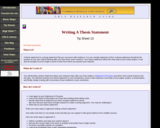
An excellent tip sheet for creating and perfecting a thesis statement. Also includes information about statement of purpose and examples.

A tip sheet on how to write and develop an introduction to a research paper.

Resource provides a good summary of APA (American Psychological Association) style, including several examples and guidelines for incorporating direct quotations into the text of a paper.
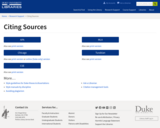
This resource contains the basic citation information for articles from journals, articles from books, articles from databases, books, newspapers, government publications, and web sites. Students can click on one of theses publications and sample citations will appear in MLA (Modern Language Association), APA (American Pstchological Association), Chicgo Manual of Style, and Turabian format.

This site provides basic guidelines and examples for how to compile a bibliography. Grade levels listed 1st through 6th.

This webpage describes how to use index cards for writing a term paper or research paper, as well as other clear steps to follow to improve research writing.

Modern Language Association of America's official site. Good links to its MLA Handbook and to MLA Style Manual, however, you have to buy the book if you want specifics. Gives guidelines for documenting sources from the World Wide Web.

An excellent tip sheet on how to write and develop a works cited and documentation list for a research paper. Includes in-depth information and examples.

This Modern Language Association resource contains a list of frequently asked questions about MLA (Modern Language Association) format. L.9-10.3a Standard Format

This tutorial focuses on picking a research topic by brainstorming and freewriting about what interests you or what you want to learn more about and doing background reading to see what information is available for your possible topics. It provides a video [6:03] to narrow your ideas down to a single, manageable topic to fit the assignment.

Welcome to Research 4 Success (R4S)! The course is designed to supplement the instruction of research and information literacy skills for students in grades 9-12. Purpose and Design of the CourseR4S consists of six learning units. The six units can be used together or they can be used individually. Each unit contains three lessons. Each lesson has resources and activities to supplement the instruction of research, inquiry, and information literacy skills.Students learn key skills using a combination of videos, digital texts, and eBooks.Students practice key skills using a combination of templates, tasks, and interactives. Students apply the skills they have learned and practice as they develop a research project under the guidance of an educator.
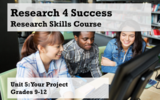
You have found your sources. You have taken good notes and organized your information. You have an idea you want to share. The next step is polishing it up for others to see. You will need to choose the best way to share your new knowledge with your audience. Remember to give credit to the original author of any work - music, video, writing, or even a game.Each lesson includes activities and resources selected to help students learn, practice, and apply research skills. Students learn how to develop a thesis statement and use citations, practice developing a topic with reason and evidence, and apply strategies and tools to produce, publish, and share research.

Students will apply strategies and tools to produce, publish, and share research.

Students learn how to develop a thesis statement and use citations.

This tutorial begins with a PowerPoint presentation, "What to Look for When Revising," which is followed by information about the importance of the teacher or professor's notes. It also includes a PDF revision checklist, a peer editing checklist, and essay rubrics.

This site presents and defines the general parts of a research paper: title, abstract, introduction, material and methods, results, discussion, acknowledgments, and literature cited. Several helpful questions are presented to the reader throughout the site.
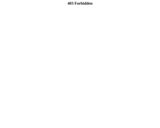
This site provides information on the APA (American Psychological Association) documentation style. The information can be downloaded in PDF format. It refers to several handouts dealing with parenthetical references, reference lists, headings, usage and style, formatting of a paper, and how to cite electronic sources. Several sample entries and pieces of writing are used to illustrate the points being discussed. A link to the APA homepage is also provided.
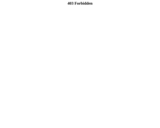
This site outlines the basics of the MLA (Modern Language Association) style of documentation and includes links to handouts about in-text citations, the works cited page, and how to cite electronic sources. Several sample citations and examples are provided throughout to help illustrate the information being presented. The information can be downloaded in PDF format. A link to the MLA website is also provided.

An excellent tip sheet for creating and perfecting a statement of purpose. Also includes information about thesis statements and examples.